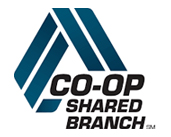Price Transparency/Aultcare
News/Specials
News
What's New
Beware of VIN Cloning
The Canton Regional and Greater West Virginia Better Business Bureau offer tips and advice for consumers to avoid fraudulent practices.
The Concern
You see a classified ad for a late model luxury used car, but the advertised price is less than what you’d expect to pay. When you call the seller, he says his family has large medical bills or credit card debt and he needs cash quickly.
You jump at the bargain, meet to inspect the car, transfer the title at the motor vehicle office and pay him the cash and you drive off in your new car. All seams well until the police knock on your door and inform you that the car you are driving is a stolen car.
You have just lost your cash and your car and joined the ranks of victims of the growing scam called vehicle identification number (VIN) cloning
The Facts
Motor vehicle offices require a VIN to register a vehicle, and the number is also recorded on the vehicle’s title. A VIN cloner takes the unique identification number from a legally owned or junked vehicle and uses it to forge documents for a stolen vehicle of a similar make and model.
CARFAX estimates that more than 225,000 of the 1.5 million vehicles stolen each year end up with VINs from a legally owned vehicle and are resold.
How the Scam Works
VIN cloners steal VIN’s from high-end vehicles and expensive SUV’s because they can get a higher price in the used car market than standard makes and models. (VIN’s are found on the driver’s side dash, driver’s side door jam, engine, or rear wheel well.)
Once the VIN is obtained, the thieves find a similar vehicle and steal it; create new documents, sometimes even create a new VIN tag and replace the one on the dash. The vehicle is then sold or traded in.
Avoid the Scam
To help prevent falling victim to VIN cloning, the Better Business Bureau suggests the following:
Be extremely cautious if you see a late model vehicle selling significantly under normal market price. Do not fall for the “we need cash quickly” excuse; exercise due diligence. Check the VIN on the dash with the door jam, on the engine and title documents; making sure they all match. Closely examine the car’s title, registration, and other documents. Fake documents sometimes contain misspelled words.If you have questions about the validity of the vehicle’s VIN, obtain a comprehensive history report.
If you think you may be a victim of VIN cloning, contact the police.










